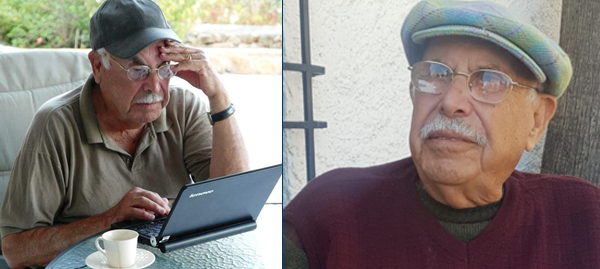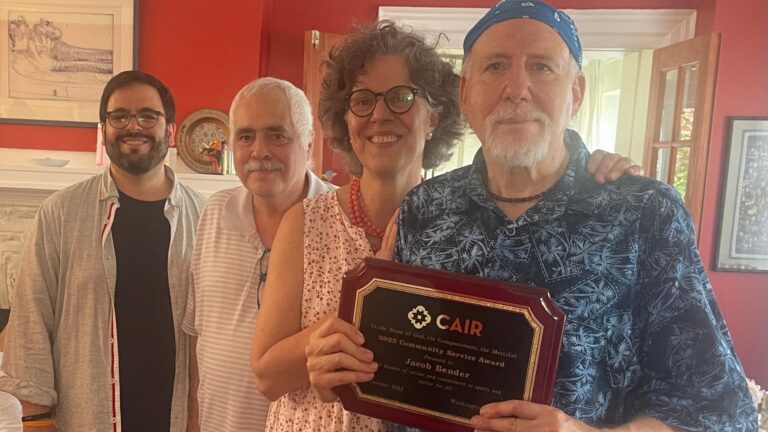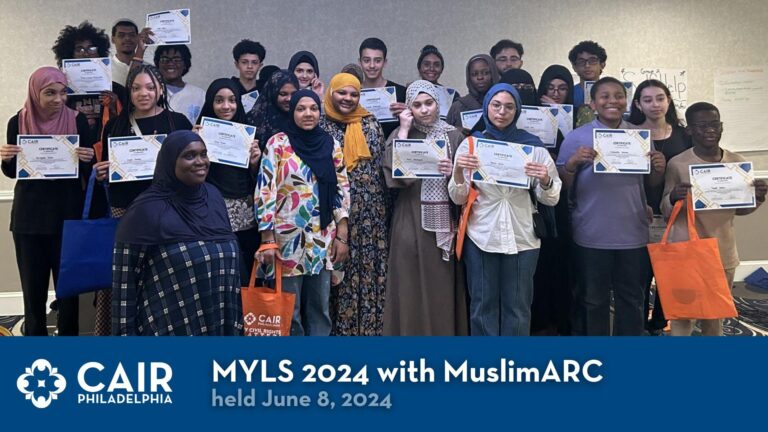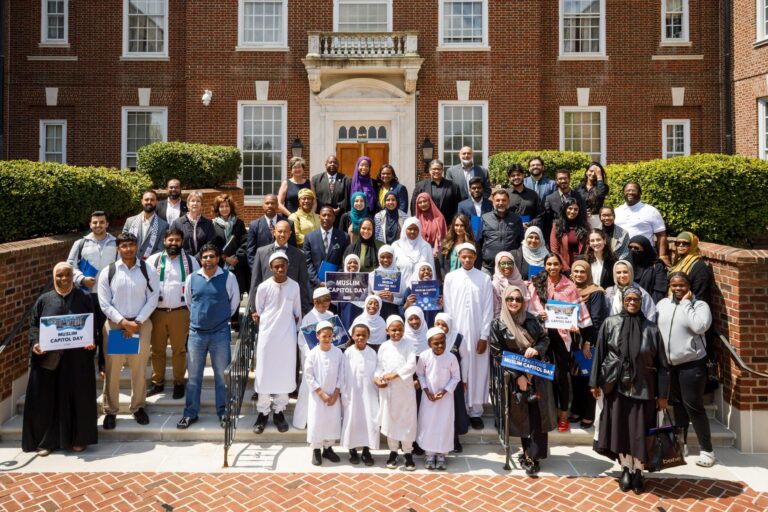A Jew Mourns a Palestinian Hero
Some Thoughts on the Passing of Dr. Anis Al-Qasem,
Palestinian Freedom Fighter and Father of Osama Al-Qasem
by Jacob Bender, CAIR-Philadelphia Executive Director
At the age of 95, Dr. Anis Al-Qasem returned to God in Alicante, Spain, surrounded by his wife Amal and their children. The Palestinian community around the world and its political, legal, and social leaders and institutions mourned his death, as did much of the Arab media.
I never met Dr. Anis Al-Qasem in person. Yet, from the stories I heard about him from his son, Osama Al-Qasem, my friend and employer as Chair of the Board of CAIR-Pennsylvania, and my own research into the lifework and writings of Dr. Al-Qasem, I learned much about this extraordinary man, his courage, his scholarship, his love of justice, and his unwavering dedication to Palestinian freedom.
It was therefore my great honor that the Al-Qasem Family approved of my request to write a eulogy of Dr. Al-Qasem for our CAIR-Philadelphia Newsletter, in the hope that our community of friends in Philadelphia, will also, like myself, come to know something about this remarkable human being.
The death of a beloved parent is a milestone in one’s life. (My own mother died last summer at age 93, and I am still astounded at her many achievements.) Although this is indeed a time of mourning for the Al-Qasem family, I hope they will also be able to take a look back at Dr. Al-Qasem’s life and allow themselves some celebratory moments in his honor.
Dr. Al-Qasem, a Barrister-at-Law, was a co-founder of the Palestine Liberation Organization (PLO) at the original Palestine National Congress in 1964, and a member of the first Palestinian National Council (PNC), Palestine’s parliament in exile. He co-authored the original constitution of the PNC, and as chair of the legal High Commission in the National Council, he co-authored Palestine’s basic law and by-laws of the National Council. He also drafted the Palestinian Constitution hoping to have it go into effect when Palestine became an independent state.
In 1976, he co-founded and became Secretary General of the International Organization for the Elimination of All Forms of Racial Discrimination, an NGO headquartered in Geneva with consultative status in the United Nations. Dr Al-Qasem and EAFORD worked tirelessly in and outside the UN in the struggle against apartheid, both in South Africa in its time, and in Israel today, fighting as well for the rights of other persecuted indigenous populations around the world.
Although Dr. Al-Qasem’s personal donations provided support for many Palestinian children and prisoners, he was able to substantially increase this support by his founding or co-founding of numerous charitable organizations supporting Palestinians under illegal imprisonment by Israel, Palestinians injured and maimed by Israeli forces, and the education of Palestinian youths. He was not shy of asking those with privilege to support those in need, leading both by example and by providing the mechanisms and organizations to accomplish this goal.
Dr. Al-Qasem’s dedication to the cause of Palestinian freedom was matched by his devotion to the law and moral principle. He spoke truth to power, often courageously berating Palestinian leadership when it abused its power by serving elites at the cost of the broader Palestinian diaspora and violated the human rights of Palestinians under their control. Dr. Al-Qasem did not succumb to political pressures to sway his opinions no matter the source of that pressure. Adherence to justice and the rule-of-law were his unwavering positions. And though the road to a State of Palestine was filled with many setbacks and disappointments, Dr. Al-Qasem, like a true samud, never abandoned that dream.
Dr. Al-Qasem remained active well into his later years, travelling from London to Beirut at the age of 85 to attend a very broad international conference that sought to reconstitute representation of Palestinians in the diaspora as well as the occupied territories. These efforts evolved into the formation of the “People’s Congress of Foreign Palestinians” which was held in Istanbul in February 2017; Dr. Al-Qasem’s opening speech at the conference to the large audience was an inspiration to all who were privileged to hear it.
As a legal scholar, Dr. Al-Qasem wrote numerous legal opinions on events of the day, and dozens of articles and six books on Palestine and Arab nationalism. In addition to his political activism, Dr. Al-Qasem authored the Petroleum laws in Libya where he spent decades of his life. As head of the Libyan Petroleum Commission, he was responsible for granting drilling rights to international oil companies, and renowned for bringing them to the authorities when they tried to gain drilling rights through bribery.
In his later years, Dr. Al-Qasem and his family moved to London, England, where he practiced international law and was highly regarded by the legal community.
There is a Jewish legend that tells the story of the “Lamid Vovniks,” thirty-six righteous human beings who, in every generation and through their bravery and love of justice, keep the world from being destroyed. I have no doubt that in his generation, Dr. Al-Qasem was one of these thirty-six righteous human beings, an inspiration to all who were touched by his life. He was an advocate not only for the Palestinian people, but for all those persecuted because of their religion or the color of their skin.
On behalf of the CAIR Pennsylvania Staff, Executive Committee, and Members of the Board, we offer Osama Al-Qasem, his family, and the Palestinian community around the world, our sincerest condolences for the loss of such a man. May his legacy and the memories of his many accomplishments light the path towards a free and independent Palestine, and peace and justice for all humankind.
Inna Lillahi wa inna ilayhi raji’un
“We belong to God and to Him we shall return.”
Qur’an 2:156





